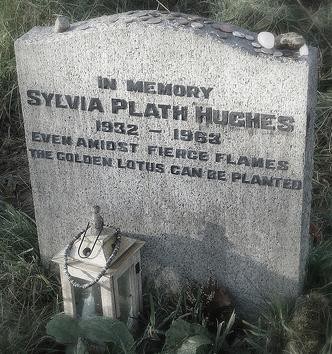"In March 1970, the poet Ted Hughes found himself in a tricky real estate situation."

“Especially in its first half, The Bell Jar exposes the situation of a very smart, ambitious young woman coming of age in the 1950s, when intelligence and ambition, past a certain threshold, were real liabilities for women. Plath hospitalizes Esther and lets her out again, but she never resolves the central problem that Esther confronts most palpably in New York: how to be a woman and how to be a writer, and how to be those two things at once. The closest to a solution she gets is her description of the gleeful freedom that becomes available only when Esther totally lets go of her goals and her self-image. In the latter half of the book, Plath holds out the strange promise that there’s a way to kill your compulsive good-girl self without killing your whole self. But she never suggests that there might be some way of doing this that doesn’t involve literally trying to kill yourself.”
— The Bell Jar at 40.
